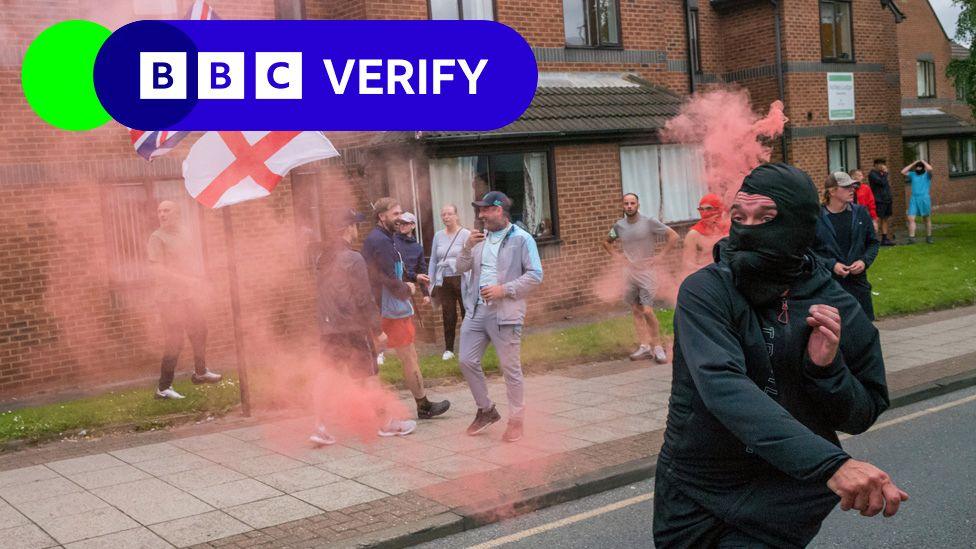Social media misinformation 'fanned riot flames'
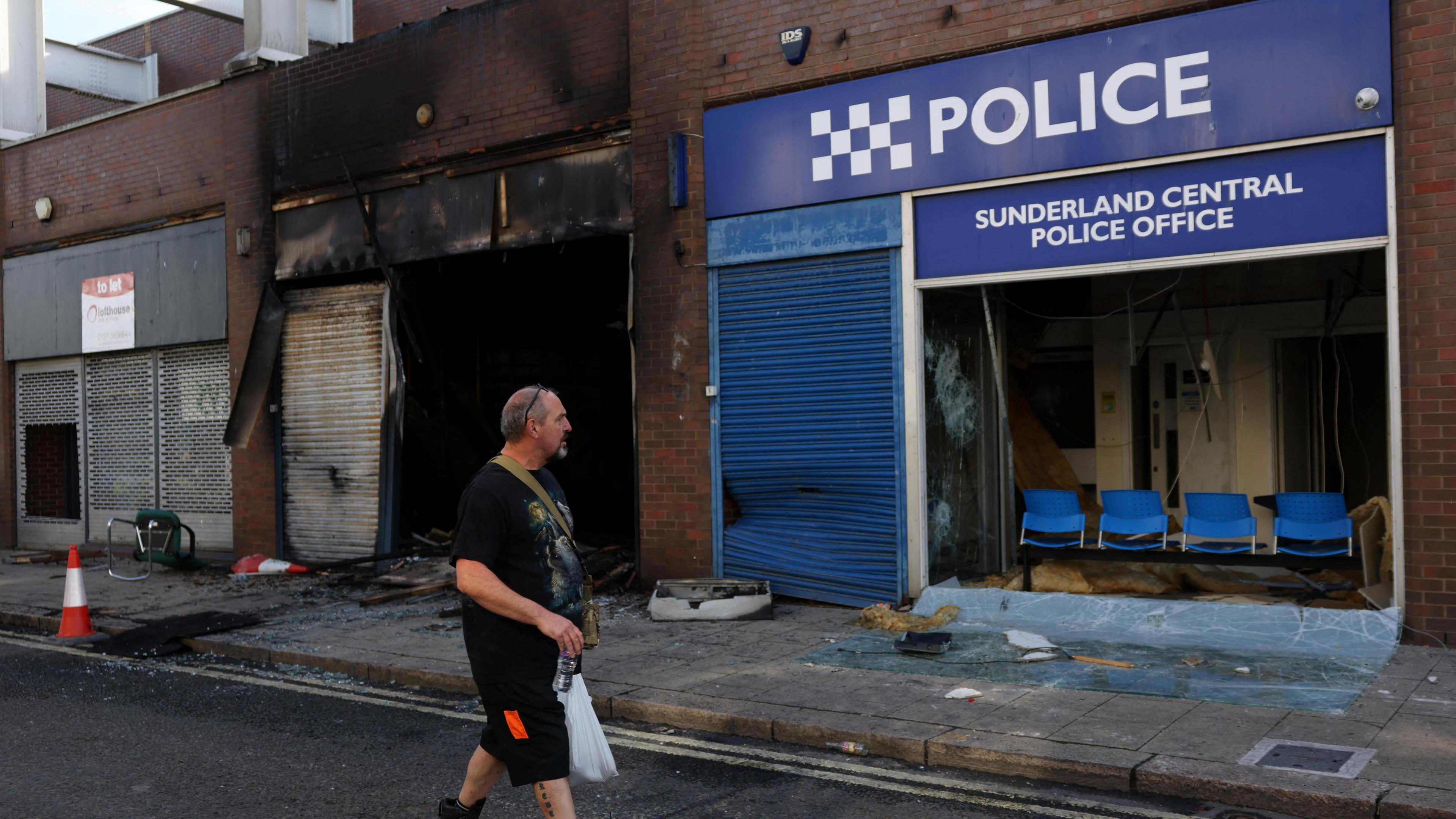
Videos of the building on fire in Sunderland were shared online
- Published
Social media is accused - by technology experts, academics and police - of fanning the flames of the recent disorder seen across the UK.
BBC North East Investigations has seen far-right groups online that organised protests in the region at short notice and incited violence against Muslims.
Calls to burn mosques and murder black and Asian people were just some of the content seen on a far-right group on the Telegram app set up after the murders of three girls in Southport last month.
The app said it was "actively monitoring" the channels.
Another post was shared, containing a list of locations, including Middlesbrough, for "peaceful events". But, if you scrolled to the bottom, it read "time for war, lads", followed by nine flame emojis.
The protest at Middlesbrough turned ugly, with some of the violence and riots live-streamed on social media apps for thousands to watch.
According to Chris Stokel-Walker, a technology journalist and lecturer from Gateshead, "this is unprecedented".
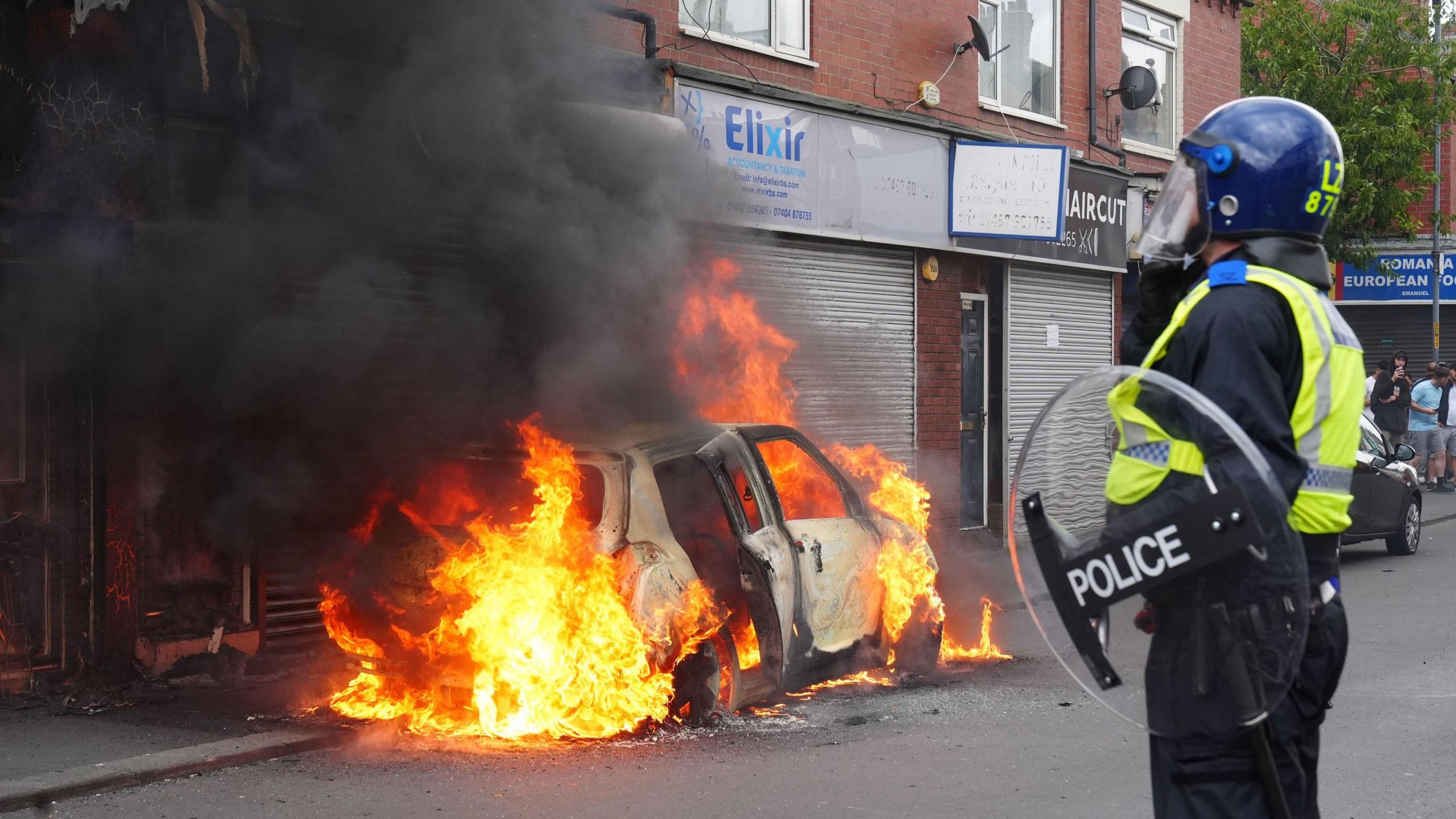
Some protesters live-streamed violence in Middlesbrough
Videos of a Citizens Advice office on fire next door to a police station in Sunderland were also shared online during and following violence in the city.
There have been numerous videos of cars set alight and police vehicles smashed up.
"The fact that everybody is putting this onto TikTok and other social media platforms, and they seem so shameless, I think is unprecedented," Mr Stokel-Walker said.
TikTok has been approached for comment.
A teenager accused of live-streaming violence in Darlington this week was charged with violent disorder and remanded in custody until his next court appearance.
Addresses of immigration services in Newcastle and Middlesbrough were also shared on another Telegram group we monitored.
It is not known if this was an intentional ploy to mislead the police, but the right-wing protests apparently planned in towns and cities across the UK did not materialise.
After days of heightened fear and anxiety, thousands of counter protesters filled the streets instead.
A spokesperson for Telegram said its moderators were "actively monitoring the situation and are removing channels and posts containing calls to violence".
"Calls to violence are explicitly forbidden by Telegram's terms of service," a spokesperson said.
'Accelerated anger'
Misinformation online has also "accelerated" some of the anger, Mr Stokel-Walker said.
Hours after the murders of Bebe King, six, Elsie Dot Stancombe, seven, and Alice Dasilva Aguiar, nine, in Southport on 29 July, fake news about the attacker began to circulate on platforms like X, formerly known as Twitter.
And, as the misinformation spread, so did the increased levels of anger.
It was falsely claimed the alleged killer had arrived in the country on a dinghy in 2023. Others posted that he was a Muslim, and a fake name also circulated.
Merseyside Police later confirmed he was born in Cardiff to Rwandan parents and had no known links to Islam.
"The whole reason these riots are happening is because of misinformation," Mr Stokel-Walker believes.
"The misidentifying of the alleged suspect, and this kind of idea this had some kind of racial element, gets baked into the discussion.
"It was completely and utterly untrue."
X did not respond to the BBC’s request for a comment.
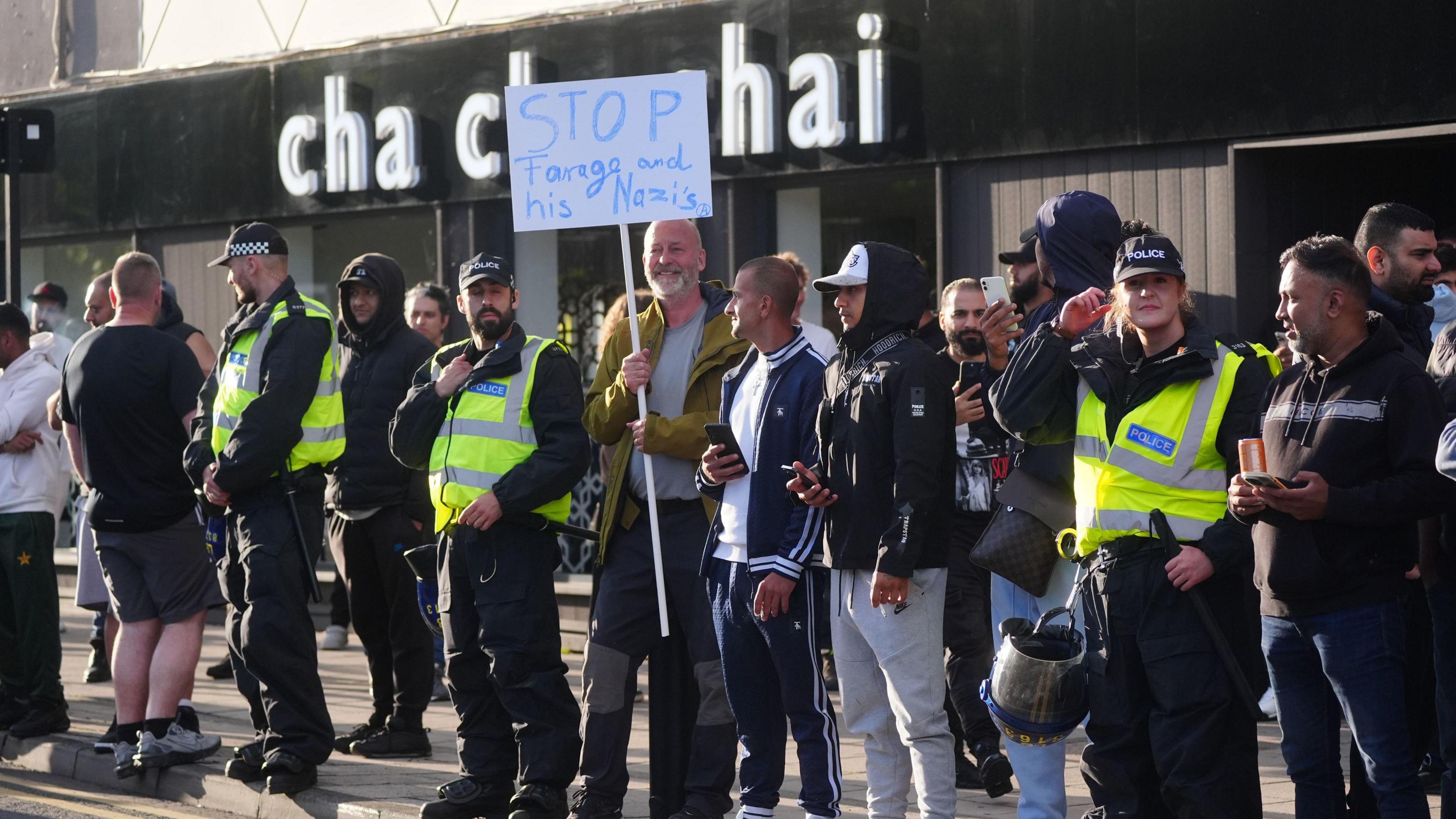
Thousands of counter protesters turned out in Newcastle
The BBC’s North East Investigations unit has been monitoring social media platforms following the Southport attack and found further examples of misinformation being shared.
Far right activist Tommy Robinson shared inaccurate information to his 900,000 followers on X stating the "lad who organised Middlesbrough march been locked up on terrorism charges".
He was sharing someone else’s post, so it is not clear if he believed the information to be true.
Cleveland Police later said it "had not arrested anyone in connection with terrorism offences".
But the rumour had already circulated online and was used to encourage violence against the police in Middlesbrough in a further Facebook post.
"Key social media figures, prominent influencers, politicians and right-wing journalists undoubtedly fanned the flames," Dr Bethany Usher, a social media and crime expert at Newcastle University, said.
"You just have to look at some of the comments underneath those posts and see some of the things people were saying to see how that incitement worked."
'Whipped up'
Cleveland Police Chief Constable Mark Webster said the people involved in riots in Hartlepool and Middlesbrough had been "whipped up" by others on social media.
"They've been really heavily influenced by what they read online," he said.
He said there was clear evidence of how misinformation had made people afraid.
"We've seen people closing shops or staying inside their houses because of what they read on social media," he said.
False rumours of acid attacks in Middlesbrough and Newcastle were also shared on various platforms.
Cleveland Police were forced to confirm in a statement it had received no such reports.
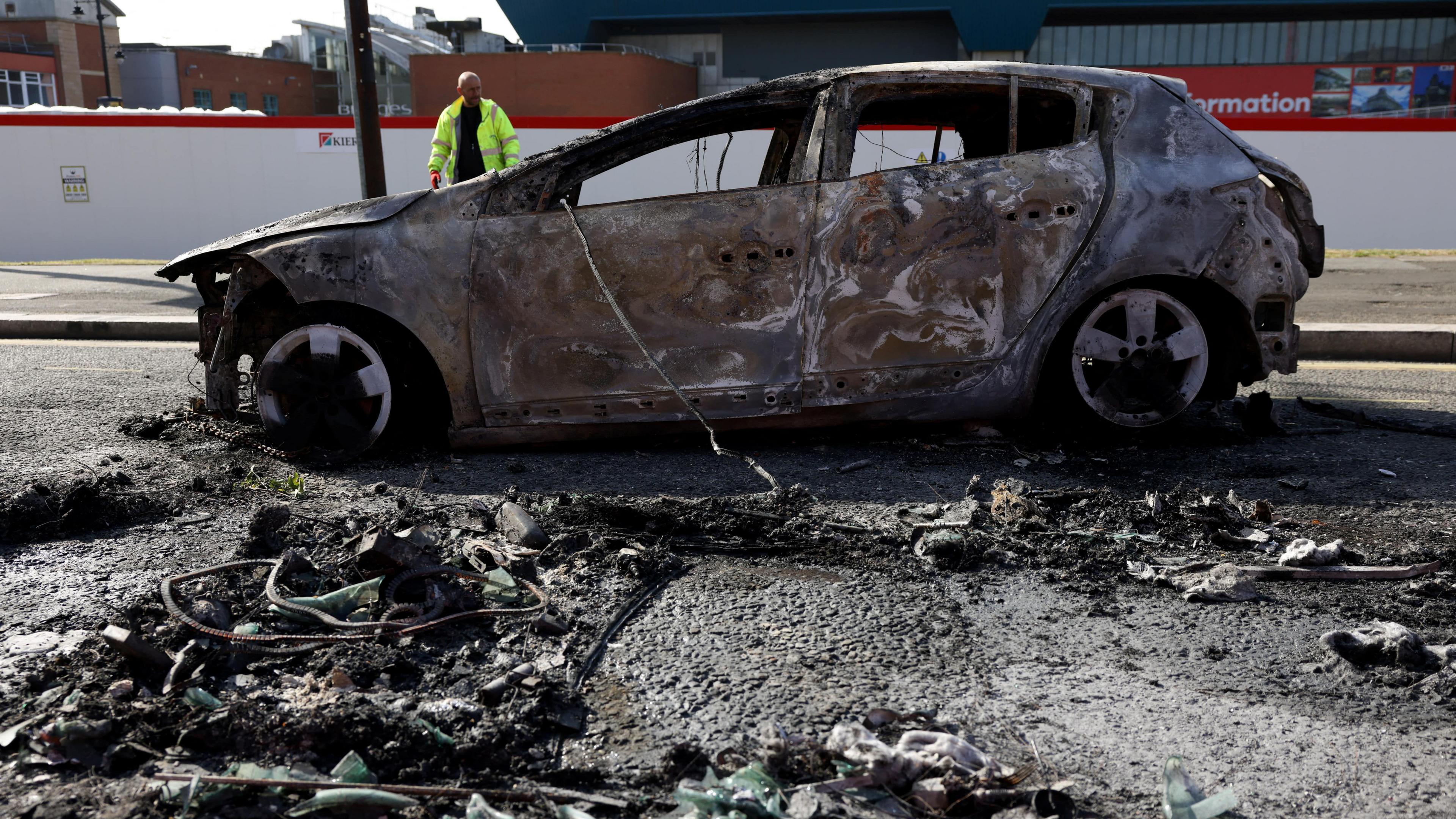
Rioters burned a car in Sunderland
A post on social media over the past few days also suggested "acid attacks are happening in Newcastle".
The post suggested three taxi drivers had been attacked and were treated at the Royal Victoria Infirmary (RVI).
The BBC contacted Northumbria Police and the RVI and neither had received reports of such incidents.
To avoid repeating incorrect information, people should "carefully check everything you encounter" before sharing it online, Mr Stokel-Walker said, recommending using "reliable sources you can trust".
Follow BBC North East on X (formerly Twitter), external, Facebook, external and Instagram, external. Send your story ideas to northeastandcumbria@bbc.co.uk.
Related topics
More stories from the BBC
- Published8 August 2024
